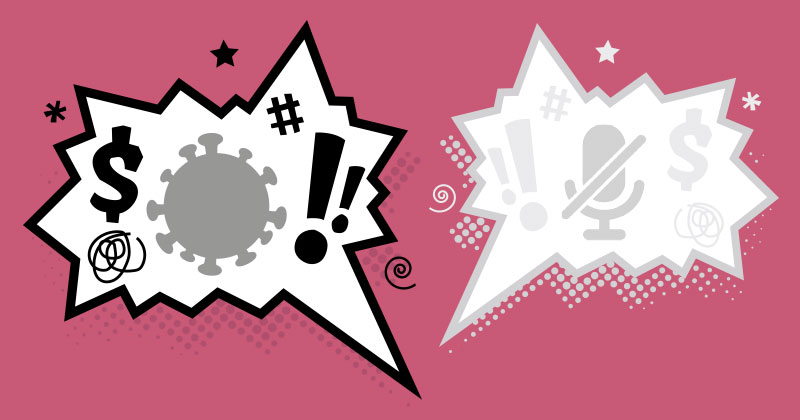


"Rona Rage? Not Really
December 20, 2021
Rage, it seems, is everywhere.
All through the cascading crises of these past endless months, from COVID-19 to the Capitol riots, there’s been a feeling that the world has become an angrier place, and that people are more likely to lose their cool.
So it’s a bit of a relief to learn that, in general, anger has not markedly increased since 2020, according to research by UD Psychology Prof. Philip Gable. He has discovered, however, that some of us have become more likely to feel that time is “dragging” during the pandemic, a response that tends generally to be associated with negative states of mind and negative feelings (in other words, “time doesn’t fly when you’re not having fun”).
It’s also important to remember that the occasional negative emotion can be to our benefit, says Gable, who developed a smartphone application to document, month-by-month, the emotions, perceptions and behaviors of Americans during the pandemic. “Anger can be useful to us because it motivates us to want to overcome an obstacle,” he says. “We found that when you’re angry, you tend to zero in and focus in more specifically on the problem, as opposed to being distracted by something or someone else.”
In these times, there seems to be a growing issue with anger that serves no real purpose: Pointless Facebook or Twitter rage sessions, for example. “It’s a bunch of screaming voices in a room,” he says. “Anger can be more productive if you’re willing to engage with someone civilly in person.”
The lesson is clear. Detach from the digital and focus instead on the real.
THE SUBTLE SIGNS OF AN ANGER ISSUE
Occasional angry episodes are part of being human and may even be to our occasional benefit. But not always. Here, Gable offers some insights into the quiet clues that your anger could be a problem.
• Not all anger is expressed angrily. Beware of “passive” anger: sarcasm, apathy or meanness. Seemingly solitary emotions can also be part of a problem, including irritability, anxiety and “shutting down” during conflict.
• Look to cues from the people around you. Ask yourself: Do people avoid me? Is my family afraid to talk to me? Do I often get into tense situations at work?
• Excessive, unresolved long-term anger can cause physical changes that threaten health, so be watchful for these symptoms: headaches, tingling, tightness in chest, elevated blood pressure and fatigue.
• Be sensitive to the possibility that your anger may be locked in a vicious circle with depression: Lashing out angrily leads to alienation and guilt, which in turn can feed depression. Unresolved depression then makes it difficult to handle emotions, increasing the likelihood of more angry outbursts—and so on.
Contact Us
Have a UDaily story idea?
Contact us at ocm@udel.edu
Members of the press
Contact us at 302-831-NEWS or visit the Media Relations website


